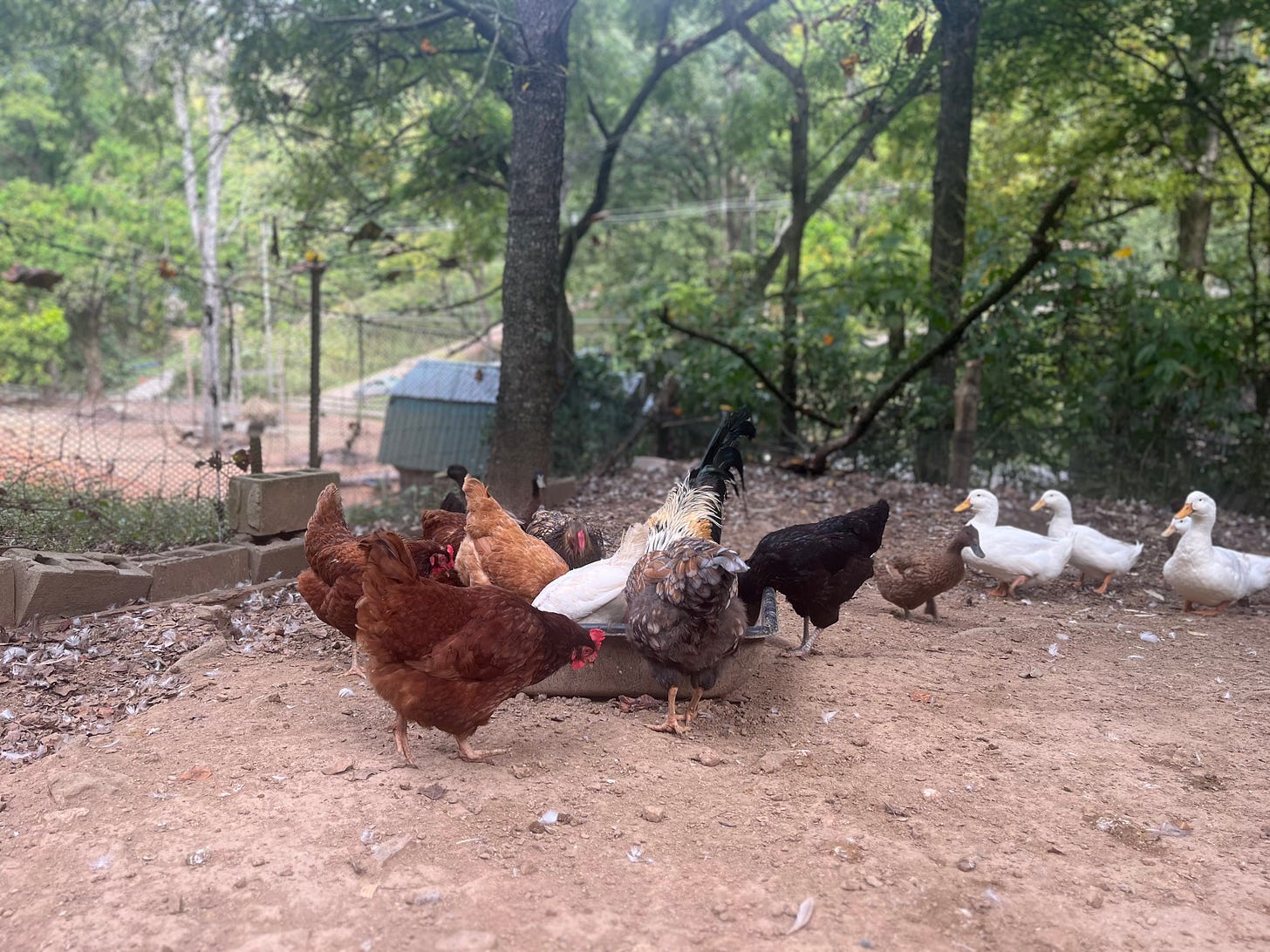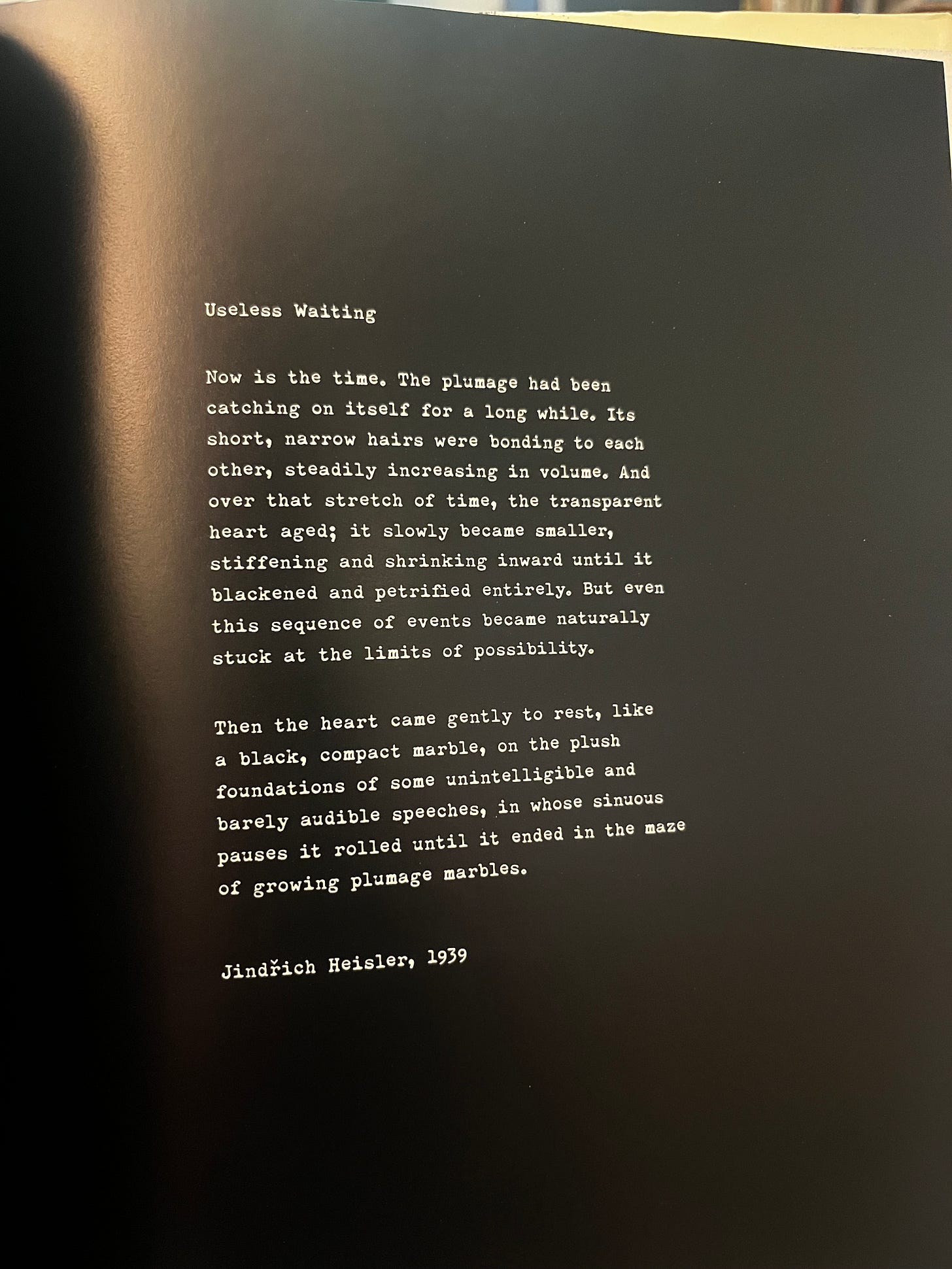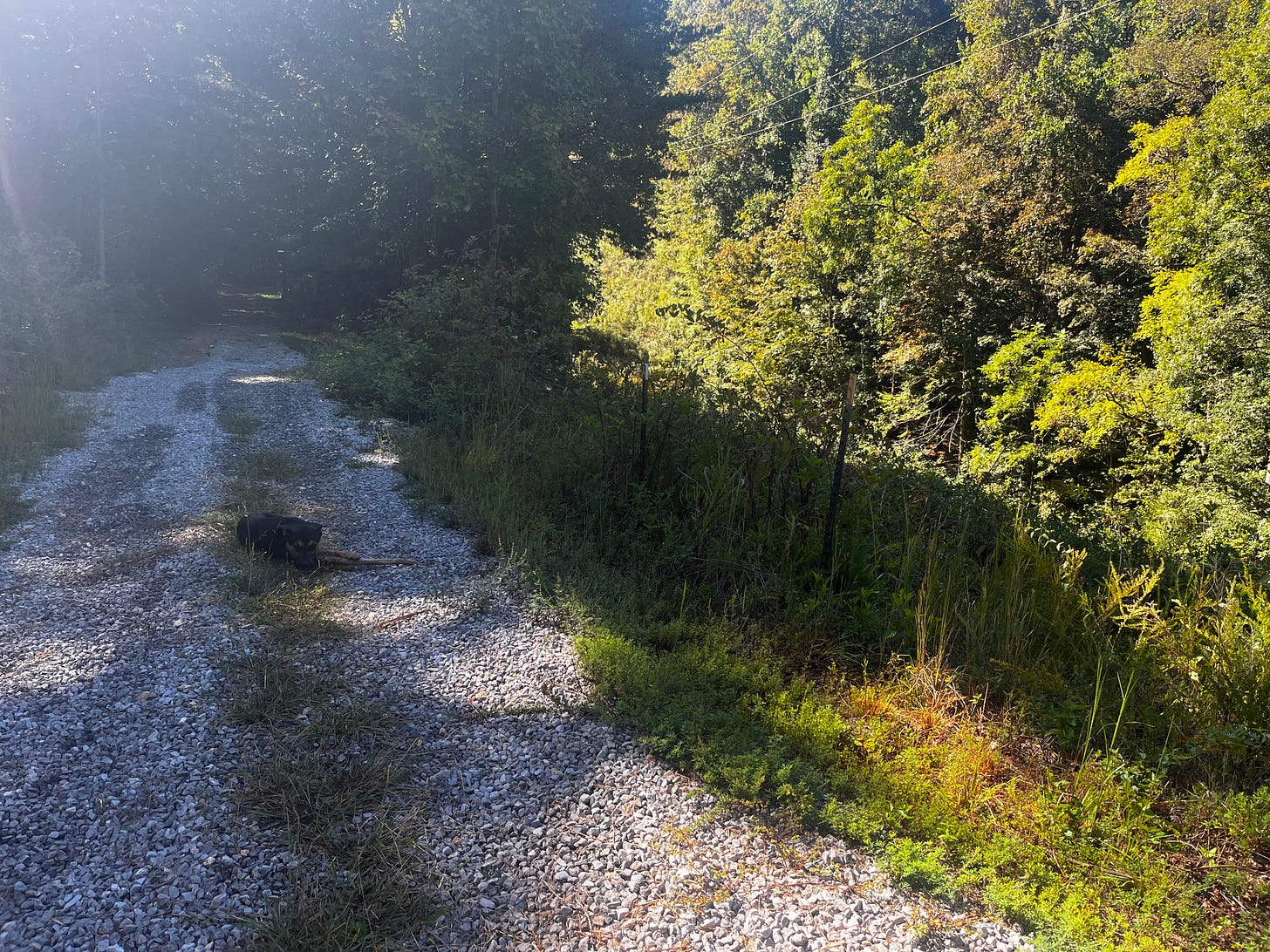Last month, I attended my first artist residency at the Sundress Academy for the Arts (SAFTA) outside of Knoxville, Tennessee. I went in with the goal of finishing edits on a braided essay I’ve been fine tuning for the last few years about only children. A large part of the essay deals with personal material, so I knew I would benefit from having the time and space to sit with my emotions as I worked.
Because I’m me, I spent the weeks leading up to the trip looking up residency tips and tricks. One that stuck with me was to not expect or plan to write on the first day. While I definitely tried to write (because I’m me), I really couldn’t get anything done besides looking over the words again and again.
Instead, I unpacked and set up my writing area at the desk inside my room and let it sink in that I was actually there. I had an “I actually did it moment” and told myself that whatever rejections happened in the past or were inevitably waiting in my future, in that moment I was grateful that I’d risked hearing “no” to get there.
Sometimes, residencies come with a work stipulation. This often means teaching or giving a reading, but because SAFTA is on a working farm, the work expectation was to feed the farm animals each morning and check for eggs. Going in, I was apprehensive that it would be difficult and excited to hang out with goats every day, but having to be out of bed to complete a set of tasks every morning motivated me and helped me easily slip into a routine.
After the first day, I got up around eight and drank coffee on the porch each morning. It was a nice change since in the real world I usually gulp down coffee while working. After coffee, I fed the goats, sheep, dog, ducks, and chickens. I’d shower, put on comfy clothes, and make breakfast (usually fresh eggs) and more coffee before settling in to write.
There were moments during the residency when the writing wasn’t coming easily where I sort of panicked. How dare I waste a moment of this week not being prolific? I only had five or four or two days left—I had to get to it! The only way I could move forward was to pause and take a breath.
I often struggle to stay in the moment instead of trying to predict the future. It’s understandable—as artists, the question “what’s next?” is often asked of us—and it can feel like if we stop swimming, we’ll die, but in the month since returning home, grounding myself in the present has become a habit. I think back to how I felt during those moments on the porch where I let myself just be instead of think.
I was lucky that the week I was in residence coincided with a monthly SAFTA reading. The featured readers were Liz Chang and Maya Williams who were both amazing, and the open mic that followed was among the best I’ve been to. Not only were the readers wonderful, but the environment was one of the most supportive I’ve been a part of. The energy was electric and warm, and the stage was so inviting that I had to read a few of my own poems.
After a couple of days of working from my bedroom desk, I explored the office—a sun-drenched room with shelves overflowing with books. I discovered Jindrich Heisler: Surrealism under Pressure, 1938-1953, a book about a forgotten Czech surrealist poet and photographer who shares my surname. Finding it felt auspicious, like art can find its way to people long after you’re gone if you’re just brave enough to create it.
One of my favorite moments was walking in the woods with the friendliest neighborhood pup. I taught him to fetch and could always look forward to having a little companion with me in the wilderness. Truthfully, I wish I would have taken more walks while I was there, but fear of the unknown neighbors stopped me. Late in my stay, I knew I’d regret not checking out the path beyond the farm, and my curiosity was rewarded with beauty.
I’ve incorporated these lessons in to my daily life since returning in a few ways. Unless I’m feeling abnormally motivated the instant I wake up, I complete a chore before settling into work, like washing a load of laundry, unloading the dishwasher, or sweeping the floors. It gives me a quick hit of accomplishment and gets my blood pumping a bit before sitting in front of a computer screen.
I realized that I can’t bully myself into productivity the way that I used to when I was younger; I have to be nice to myself now. Staying in the present is now the only way that I can move forward. When I feel overwhelmed by everything I want to do or should be doing, I pause, breathe, and find gratitude for having the problems I have.
As far as the essay goes, I didn’t finish it. A couple days in, I realized that the way to fix the big problem I was having was to do a major structural change—not to gut it completely, but to knock down a few walls. More importantly, I had a revelation about a personal aspect of the piece and found an answer that I didn’t know I needed. That was the biggest lesson: to gain that clarity, I needed space, time, and communion with other writers.












